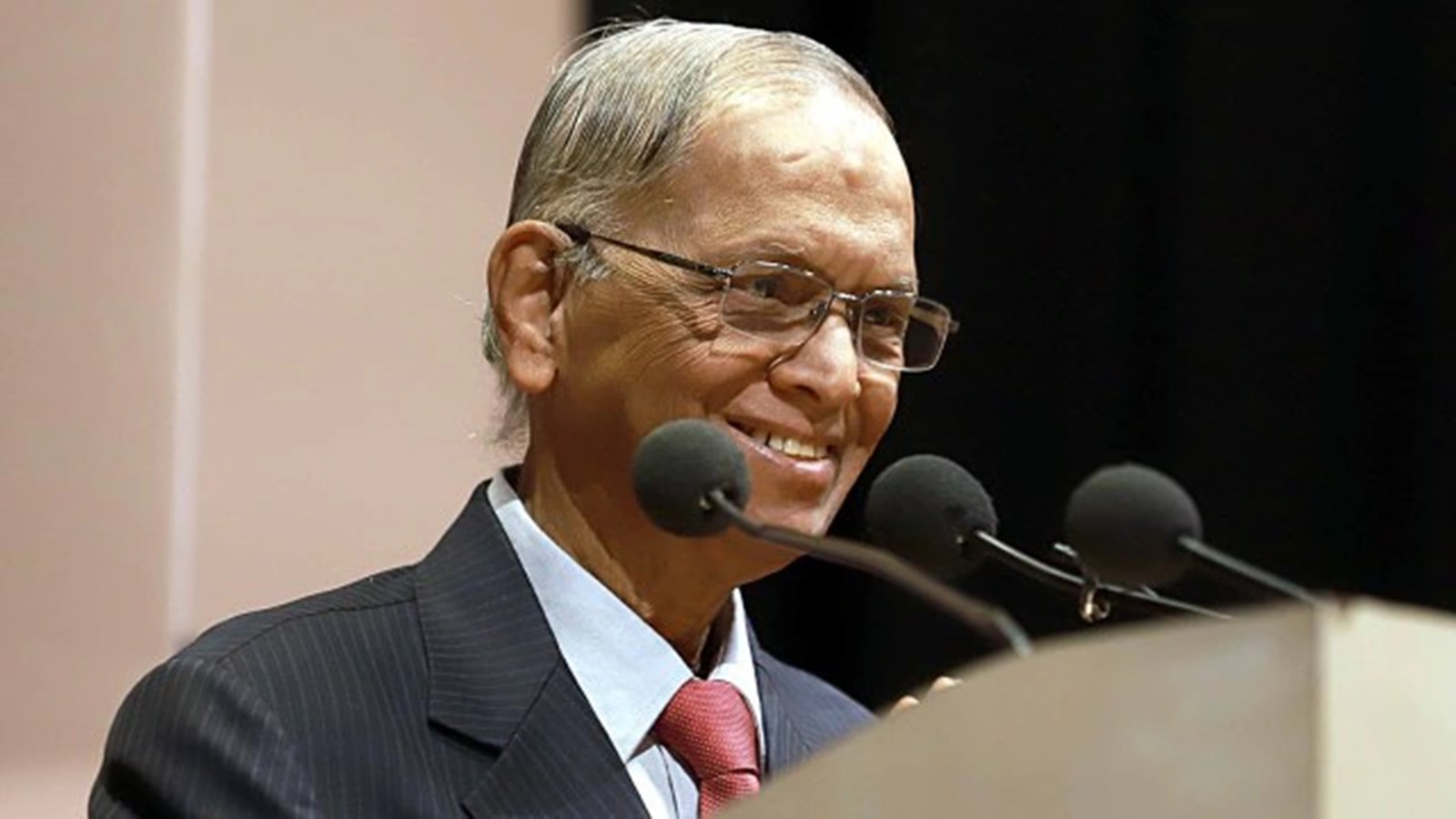Infosys founder Narayana Murthy recently advocated 70-hour work weeks for the Indian youth — an already beleaguered lot, bogged down by large-scale unemployment and the exacting terms of the gig economy. While parts of the world are reporting rising poverty levels among senior citizens, the overwhelming perception in popular culture worldwide is of a fattened, complacent “boomer” generation that remains unsympathetic to the plight of the young. Far from the sentimental tropes of 20th-century popular media that glorified the hard work and sacrifices made by parents “who would do anything to secure their children’s future” are the portrayals of an ageing population that is extractive of its young, but does not offer the illusion of a better future in return.
The prime minister, who is said to work 18 hours per day, and an IT magnate, who proposes 10-14 hours per day, hope to be role models to this battered-down youth that faces both an imminent existential threat in the form of climate catastrophes and a more immediate one in the form of job insecurity. The economic model during this Kartavya Kaal or the age of obligatory duties appears to divide the world into those who suffer from a lack of work-life balance, too afraid to sound ungrateful for the opportunities bestowed upon them by complaining about their miserable lives, and those besieged by periods of idleness and spiralling anxiety about their future.
A generational divide in terms of values and sensibilities is not new to either the political or cultural spheres. Popular culture in India has been replete with these clashes, where the young ultimately win meagre privileges from an older generation that learns to make certain accommodations in exchange for continuing fealty and gratitude. In one of the early examples, Kal Aaj aur Kal (1971), the rebellious young grandson agrees to sacrifice his happiness only to be surprised by an unexpected burst of generosity from his grandfather. In the more recent reiteration, Rocky aur Rani ki Prem Kahani, the sheltered son similarly decides to glorify his sacrifice but is ultimately rewarded by a hastily reformed patriarch. There have been many sons and daughters in between who have not been above tricking their parents into believing that there need not be a mismatch between the call of duty and their own well-being/ aspirations but such figures have often been suitably chastened for this revolutionary idea.
One filmmaker who had consistently, although gently, ridiculed parental figures who were unable to distinguish between their dictatorial will and their offspring’s well-being, was Hrishikesh Mukherjee. In several of his films, the dictatorial or eccentric impulses of a parent function as a central plot device. Utpal Dutt’s Bhavani Shankar in Golmaal (1979) or Dina Pathak’s Nirmala Gupta in Khoobsurat (1980) are not just caricatures that otherwise populated several Bollywood films of the time; these parents were also turned into figures so comically out-of-touch that you can barely reason with them. The key conflict in these films, unlike many of its contemporaries, is not the choice of a romantic partner but that of a larger worldview, of which marriage forms a small part. The figure of authority proposes to turn the youth into humourless slaves to their designated role in family and society. They perceive the world largely in binaries — order versus chaos, pleasure versus work and selfless duty versus self-indulgence — and prophesy doomsday scenarios in case of non-compliance. An interest in the simple pleasures of life (“nirmal anand”) is seen as a threat to the very fabric of the traditional Indian family.
The quiet rebellion of these films was the representation of young women and men who have passions, hobbies and even fleeting indulgences that can co-exist with hard work and dedication. When faced with a parental figure who is unlikely to comprehend that people can contain multitudes, these characters indulge in deception and lead secret yet defiant lives. Their web of lies inevitably unravels, but it is the eccentric parent who must sheepishly accept defeat and offer unconditional surrender. Ultimately, the films were not about challenging societal norms or class inequality, but rather to show that developing independent personalities as well as indulging in some self-care is not antithetical to a healthy work ethic or patriarchal family structures. The women in these films are educated and possess an independent voice, but are often not ambitious. Even the unfortunate Dr Ramola Sharma of Kissi Se Na Kehna (1983) does not mourn the career she has abandoned to successfully dupe her eccentric father-in-law — who had become virulently opposed to women’s education. What is unsustainable for her is that she must hide her true self.
Most Read
Societies will remain hierarchical and patriarchal beyond dictatorial parental figures who demand selfless labour from the young. But the least the subjugated can demand in any world order is to not live in a humourless world with no time for the simple pleasures of life.
An underlying current in many of Mukherjee’s films is a pushback against the complacent social elite. Mukherjee chose to gently mock an intelligentsia that takes itself too seriously (for example, in Chupke Chupke, 1975), arguing that different forms of artistic expressions and lifestyles can co-exist and should be perceived as equally legitimate. We still live in a world where old, powerful individuals — especially men — take themselves too seriously and advocate a life of humourless drudgery for others. Mukherjee revealed how we can gently but firmly show them the mirror while also, simultaneously, finding the time, energy and resources to indulge in the simple pleasures of life. Seeking nirmal anand in the kartavya kaal will represent a silent rebellion of sorts.
The writer is an anthropologist and the author of Courting Desire: Litigating for Love in North India
If you want to register your marriage in thane visit : https://courtmarriageregistration.co.in/court-marriage-registration-in-thane
Source link







